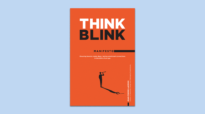Resource list: Essentials for freelance designers
Written by Greg Dubeau RGD, Better Dreams Design Studio
When you leave an in-house or agency position to become a freelancer, one thing that becomes painfully obvious is that you need to pay for your own tools and resources.
The hardware, software, memberships and office supplies necessary to do your job are now expenses coming out of your own bank account. Sure, these expenses can be written off during tax season, but spending money on your business doesn’t always feel great. But once you get your freelance business up and running, you will realize that there are some expenses that you actually look forward to paying. It may sound strange, but trust me, spending money now will save you money, time and energy down the line.
As a freelance designer, here are the five expenses I look forward to paying:
Accounting Services
When I began freelancing, I thought I would handle my own business tax filings to save money. I studied small business taxation regulations for months and prepared myself to submit my first year income tax. I thought I knew enough until I downloaded the submission forms and was paralyzed with fear and confusion. I was nowhere near confident that I was going to submit the correct information. I needed help!
I hired an accountant and they took care of my income tax. In a couple of phone calls, I learned more relevant information about how income tax actually works than I ever understood while struggling through months of research. My accountant became my representative for all Canada Revenue Agency (CRA) income tax-related tasks. And now I’m confident saying that I have zero tax-related stress in my life.
Insurance Broker
I have always treated my insurance policies as a necessary evil—paying as little as possible because I never relied on insurance for anything intensive. Then I became a freelance designer and everything changed. I learned that if I wanted to compete with agencies for larger contracts, then I would need to be insured. Freelance designers don’t need insurance; however, it is often required when working with specific types of clients such as government agencies.
My insurance broker provides me with errors and omissions coverage to work with organizations and work with clients across provincial lines. With a basic policy, I’m not at all deterred by competing out-of-province for new business.
Web Developer
Throughout my career, I have coded my own websites and used pre-made CMS templates. Control is wonderful when things work well. However, web development moves fast. After time, plugins fail, updates do not intuitively sync with templates and web-based hosting packages add complexity that makes maintenance a near-weekly task.
Partnering with a web developer reduced the complexity of maintaining my website and allowed me to find the control I required without fearing the website complications that have plagued me in the past. My website is my primary business tool, so I am more than happy to pay to have it functional and optimized 24/7.
Notion
The amount of different platforms for project management and business operations is daunting. As a freelance designer, it’s often difficult to centralize operations using minimal programs. Notion has become the dashboard for all of my freelance business operations. The intuitive features within the program have streamlined and even innovated the way I run my business. I use Notion so often that I have given my dashboard a name, Aaida, which means “to help”.
Notion offers a free entry-level Personal plan, so I would encourage anyone who is curious about its features to give it a shot.
The Association of Registered Graphic Designers
One thing they don’t tell you when you leave your in-house or agency gig, or even when you leave design school, is that you start to lose your community. Those people you worked with and shared your time with slowly go away down their own paths. Being a part of the RGD community fills that gap. I don’t know where I would be as a freelancer without the support, influence and professional resources that RGD provides its Members.
The RGD has provided me with opportunities to meet like-minded professionals who have become close friends. Through RGD, I can learn from my peers and share my ideas through presenting webinars and even speaking at conferences. But most importantly, being a Member has allowed me to feel less alone working as a freelancer. The RGD community props me up and I am grateful for their confidence in me as a Member, volunteer and voice within the Canadian design industry.

Greg Dubeau RGD
Better Dreams Design Studio
Greg Dubeau is the Design Director of Better Dreams Design Studio. Having lived, studied, and worked across Canada from coast to coast, he brings a refined and cohesive approach to design. His work seamlessly blends thoughtful storytelling, narrative-driven illustration, and strategically crafted design systems that explore the intersection of art and data.
Mentioned in this article
Tag
Related Articles


Riane Ayoung Associate RGD, Brittany Russell, Kathy-Ann Scantlebury Associate RGD, Ashley Tomlinson Associate RGD, Donica Willis RGD














